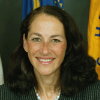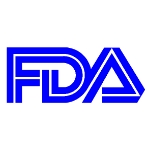Officials
Back to Officials


Offical

Name: Hamburg, Margaret
Current Position: Previous Commissioner
Dr. Margaret “Peggy” Hamburg is a highly regarded expert in community health and bio-defense, who earned high marks for her work as health commissioner of New York City from 1991 to 1997. While serving as NYC’s top health official, Hamburg managed to restore morale to an embattled health department—something the Obama administration hopes she can do for the downtrodden Food and Drug Administration (FDA).
Born in Chicago on July 12, 1955, Hamburg grew up on the Stanford University campus, where both her parents, Beatrix (“Betty”) and David Hamburg, were academics and distinguished physicians. Her mother (born Beatrix Ann McCleary) was the first African-American woman to attend Vassar College and to earn a degree from the Yale University School of Medicine (which had previously excluded black students). Her Jewish father served as president of the Institute of Medicine from 1975-1980 and was known for his work in public health and other medical fields.
Hamburg attended Radcliffe College (prior to it becoming part of Harvard University), where she received a Bachelor of Arts, magna cum laude, in 1978. She earned her MD from Harvard Medical School in 1983, and completed her training at the New York Hospital/Cornell University Medical Center in 1986. She did research in neuroscience at Rockefeller University in New York from 1985 to1986 and in neuropharmacology (the study of the action of drugs on the nervous system) at the National Institute of Mental Health in Bethesda, Maryland.
From 1986 to 1988, Hamburg served as special assistant to the director of the Office of Disease Prevention and Health Promotion in the Department of Health and Human Services, and from 1989 to 1990 she was assistant director of the National Institute of Allergy and Infectious Diseases at the National Institutes of Health (NIH), where her work focused on AIDS research. She also worked as a clinical instructor for Georgetown University’s School of Medicine from 1986-1990.
In 1990, Hamburg left the NIH to serve as deputy health commissioner for family health services for New York City. Within a year, she was promoted by Democratic Mayor David Dinkins to health commissioner—at the age of 36, the youngest person to hold the post in city history.
The following year she married Peter Fitzhugh Brown, an artificial intelligence expert, on May 23, 1992. (Brown is the director of Renaissance Technologies, a New York hedge fund.)
Hamburg’s work convinced Republican Rudy Giuliani to retain her as health commissioner when he became mayor in 1994. Having inherited a department struggling with morale problems and severe budget constraints, Hamburg strove to improve health services for women and children, instituted a controversial needle-exchange program to combat HIV infection, made inroads into curbing the spread of tuberculosis (TB), and initiated the nation’s first public-health bio-terrorism defense program. Hamburg sent healthcare workers to patients’ homes to help manage their drug regimen, and between 1992 and 1997, the TB rate for New York City fell by 46%, and by 86% for the most resistant strains, according to her Institute of Medicine biography.
During her term as health commissioner, Hamburg also worked as an assistant professor of clinical public health at Columbia University’s School of Public Health and as an adjunct assistant professor of medicine at Cornell University Medical College.
In 1993, President Bill Clinton offered Hamburg the newly created post of federal AIDS czar. Pregnant with her first child at that time, Hamburg declined; she was the first New York City health commissioner to give birth while in office, resulting in her children’s birth certificates bearing her name in two places: as mother and as health commissioner. Clinton was determined to have Hamburg join his administration, and in 1997, he offered her the post of assistant secretary for policy and evaluation at the Department of Health and Human Services, which she accepted.
Hamburg left the administration in 2001 to become vice president for biological programs at the Nuclear Threat Initiative (NTI), a foundation created by Ted Turner to reduce the threat of nuclear, chemical, and biological weapons. In 2005, she became NTI’s senior scientist. While working at NTI, she became a leading advocate for changes in the nation’s public health policies and infrastructure to meet the challenges presented by modern bioterrorism.
Hamburg’s affiliations include being a member of the Institute of Medicine and the Council on Foreign Relations, as well as a fellow for the American Association of the Advancement of Science and a distinguished senior fellow with the Center for Strategic and International Studies. She has served on the boards of medical supplier Henry Schein, Inc., The Rockefeller Foundation, The Century Foundation, Doctors of the World, The Project on Emerging Nanotechnologies, The New York Academy of Medicine, American Society for Microbiology Public and Scientific Affairs Board, CIA Intelligence Science Board, and Sidwell Friends Academy, where President Obama’s daughters, Malia and Sasha, are students.
Confirmed by the Senate on May 19, 2009, Hamburg is believed to be an acceptable choice to both the pharmaceutical industry and consumer advocates in taking over the FDA. Drug companies, however, may not be too happy with Hamburg’s new deputy at FDA—Dr. Joshua Sharfstein, former head of Baltimore’s Department of Health—who will oversee the regulation of pharmaceuticals. A one-time aide to liberal Congressman Henry Waxman (D-CA), Sharfstein is seen by some industry experts as being a potential adversary for drug manufacturers.
Obama's FDA Pick: Margaret Hamburg (by Randy James, Time)
Biography (National Institutes of Health)
Video Interview with Hamburg (National Institutes of Health)
- Latest News
- D.C. Public Schools will Teach all Second-Graders to Ride a Bike
- New Rule in Germany Limits Sales of Sex-Themed E-Books to 10pm to 6am
- What Happened to the 6-Year-Old Tibetan Boy the Chinese Government Kidnapped 20 Years Ago?
- U.S. Ambassador to Turkey Photoshops his Hair Color to Mock Turkish Mayor
- Mystery Artist Calls Attention to Unfixed Potholes by Drawing Penises around Them





